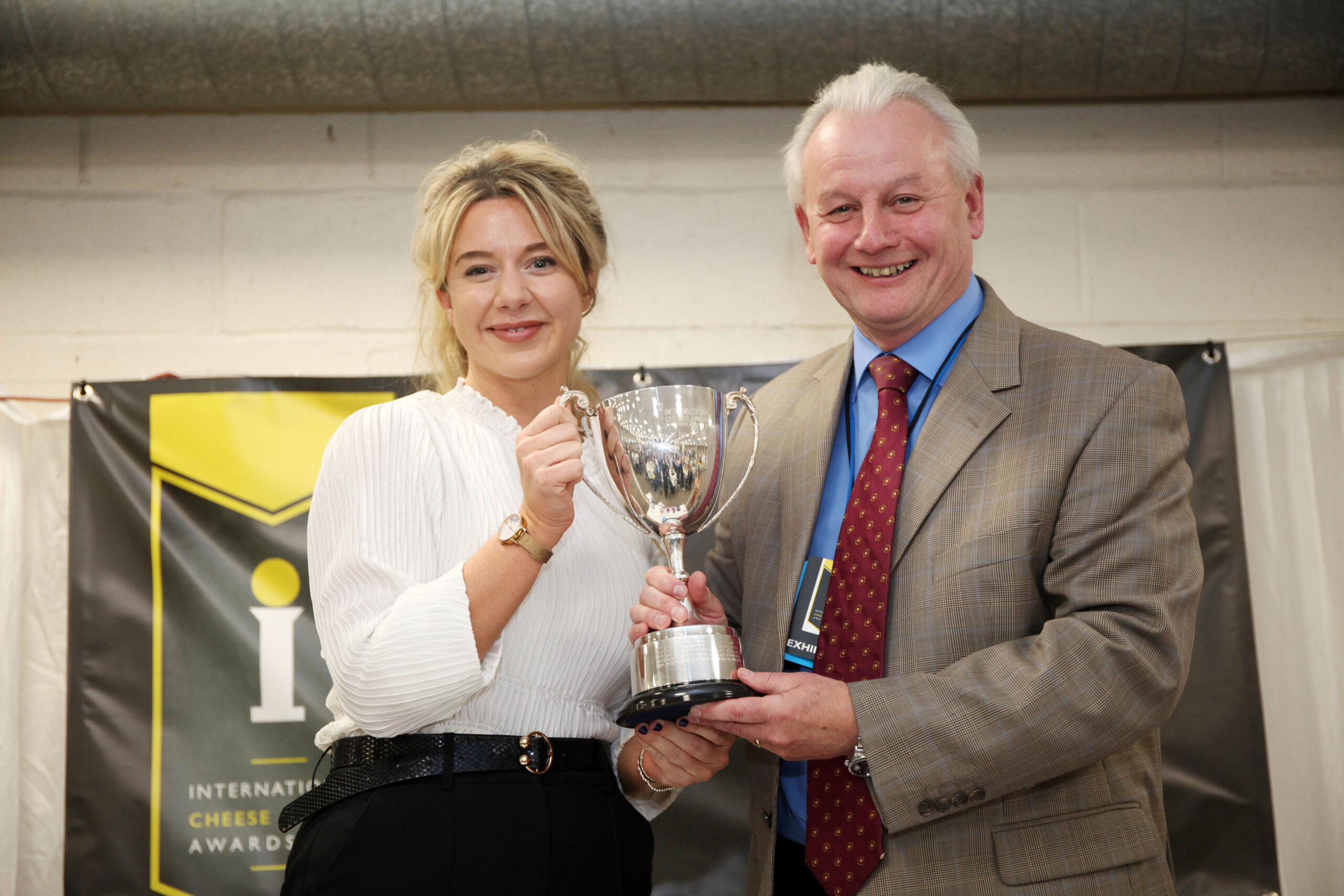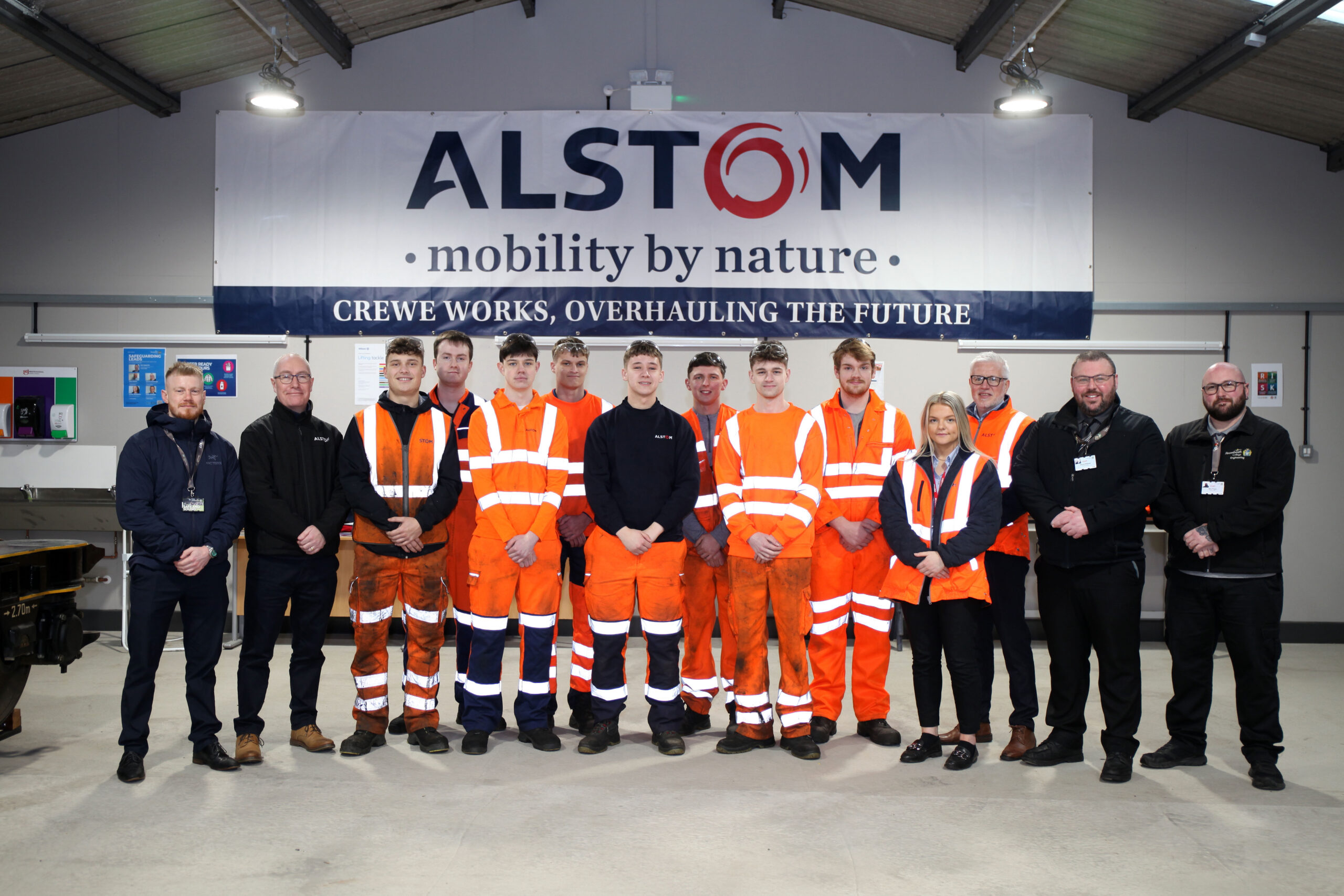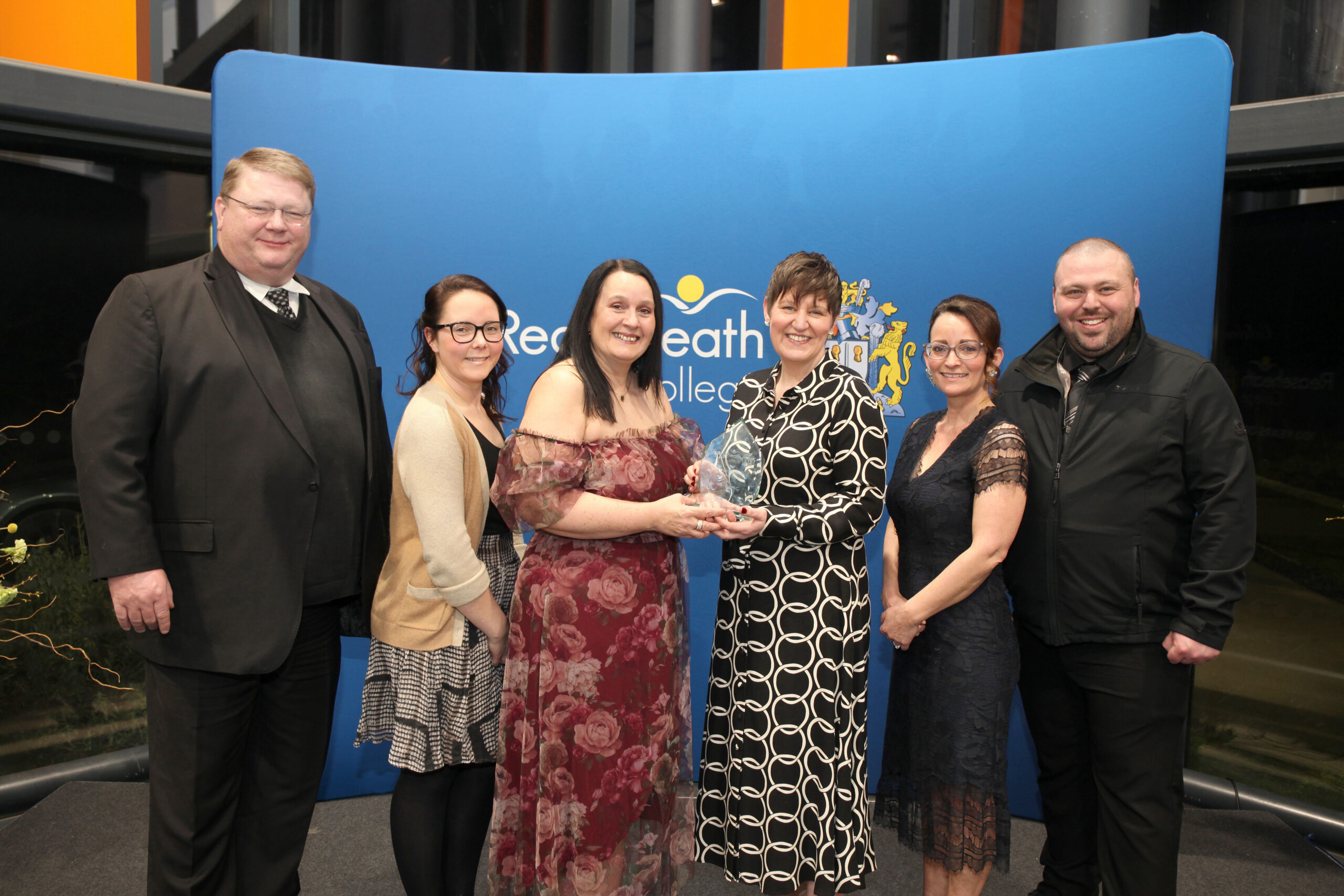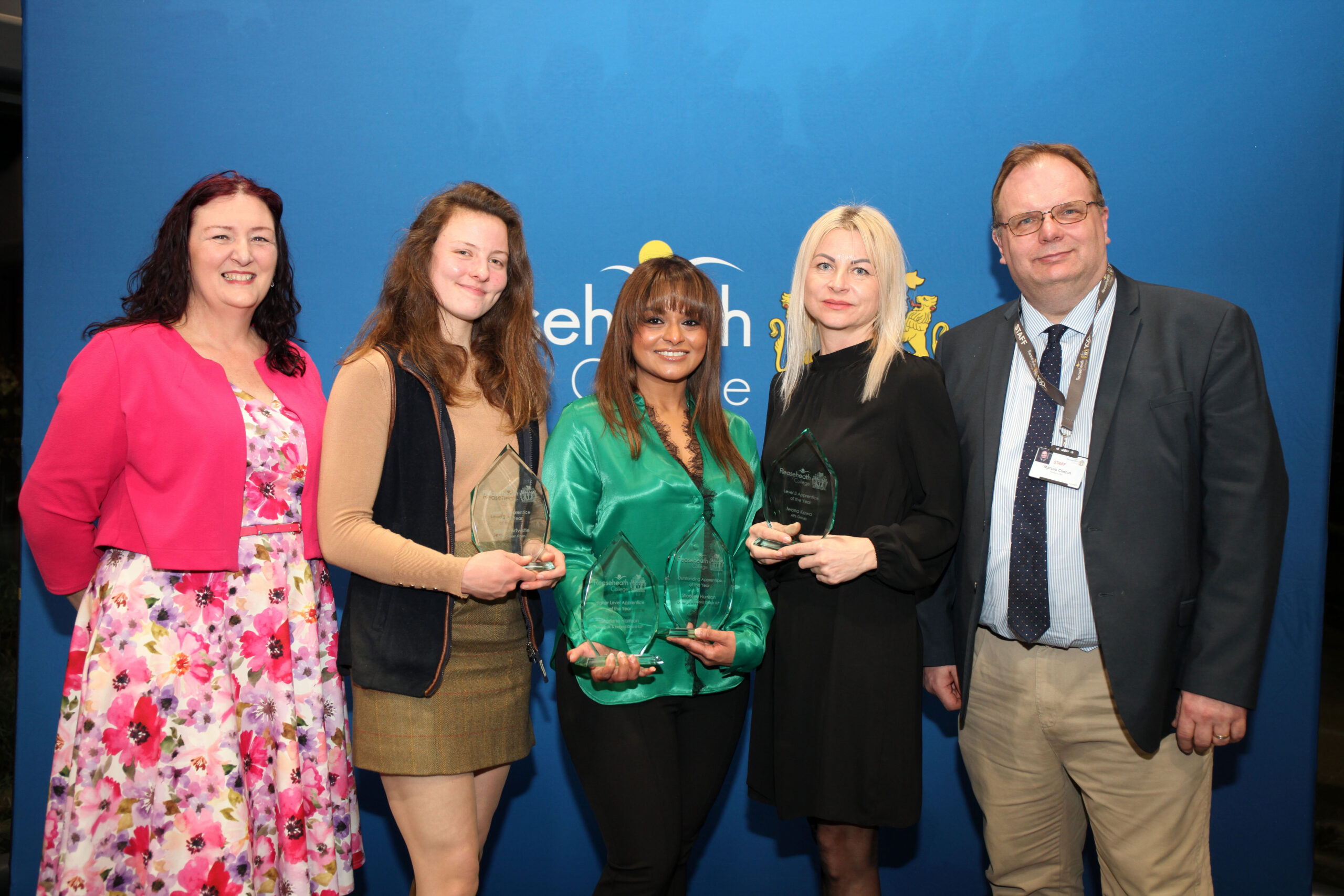A research project completed as part of our degree level Eden programme has earned an apprentice dairy technologist two major awards and industry-wide acclaim – as well as financially benefitting her employer.
Stephanie Nish, Environment, Health and Safety Co-ordinator for Arla Foods Lockerbie, applied sophisticated technology already at her workplace to determine the criteria for optimum firmness of cheese curd at cut. She used this data to modify the recipe for her employer’s cheese manufacturing process, resulting in much improved fat retention which in turn increased cheese yields.
Stephanie carried out her project during her final year of studies at Reaseheath’s BRCGS AA standard Food Centre under the supervision of her lecturers. She completed her practical research at her home site using high tech equipment from Chr. Hansen, a Danish company which develops and produces cultures, enzymes and probiotics for the food industry and is a global market leader in the production of dairy ingredients.
Stephanie used the technology to monitor the manufacturing process within the cheese vat, took multiple daily samples of the cheese curd at preset intervals and recorded the fat content of the curd. By revising the recipe over three months and repeating the tests, she was able to rejig the recipe to achieve optimum fat retention. Her recommendations have been implemented at her place of work, with very positive results.
Richard Collins, Senior Site Director at Lockerbie Creamery said: “At Arla Foods Lockerbie we take great pride in the success of our students and this year Stephanie has been an excellent example of the value that programmes such as Eden can add to the students and to the manufacturing sites.
“Stephanie has applied the skills and knowledge she has learned throughout her Eden programme with enthusiasm and with determination to succeed. Through using new technologies, completing trials and analysing results, she has delivered a significant step change in fat retention and increased daily cheese yields. Not only has Stephanie enabled her own development, she has also completed work that can be shared across many cheese process applications, and has delivered a significant financial saving for our business.”
As well as earning recognition within her company, Stephanie’s project has won her two major industry awards and high praise from judges within the sector. She is this year’s recipient of the prestigious Student of the Year (Best Project) Award, presented jointly by the Society of Dairy Technology (SDT) and the International Cheese and Dairy Awards (ICDA). In this report based competition, Stephanie’s project was placed above entries from three other universities and scored an excellent average score of 86% from four SDT and ICDA judges.
She was also awarded ‘SDT Eden Student of the Year’ in a final year competition open to herself and fellow peers within Eden Student Cohort 10. Entries were judged from online presentations which were viewed by more than 50 representatives of companies which support the Eden programme. Four SDT judges scored the projects based on criteria including scientific explanation, technical complexity and value to the employer and wider dairy industry.
The competition was held over two days and was organised by Mike Bennett, Reaseheath’s Processing Halls Manager. Sharlene Harrison (Muller Dairies) and Mark White (Saputo Davidstow) were runners up.
The earlier award was presented at the ICDA cheese show luncheon while the latter was handed over at the SDT annual dinner.
Stephanie, who has recently been promoted to her present role within Lockerbie Creamery, joined the company three years ago after working for Marks & Spencer for 11 years as a visual project co-ordinator. She made the career change after helping her husband Lee Nish, a former Eden Cohort 8 student, with his course work and being impressed with its interesting content.
She said: “I certainly wouldn’t have been able to achieve and progress as far as I have without being an Eden student. I owe so much to the hands-on experience I gained in Reaseheath’s industry standard processing halls and to the support of my lecturers, who encouraged me to expand my knowledge and gave me the confidence to apply my research into practical solutions.”







